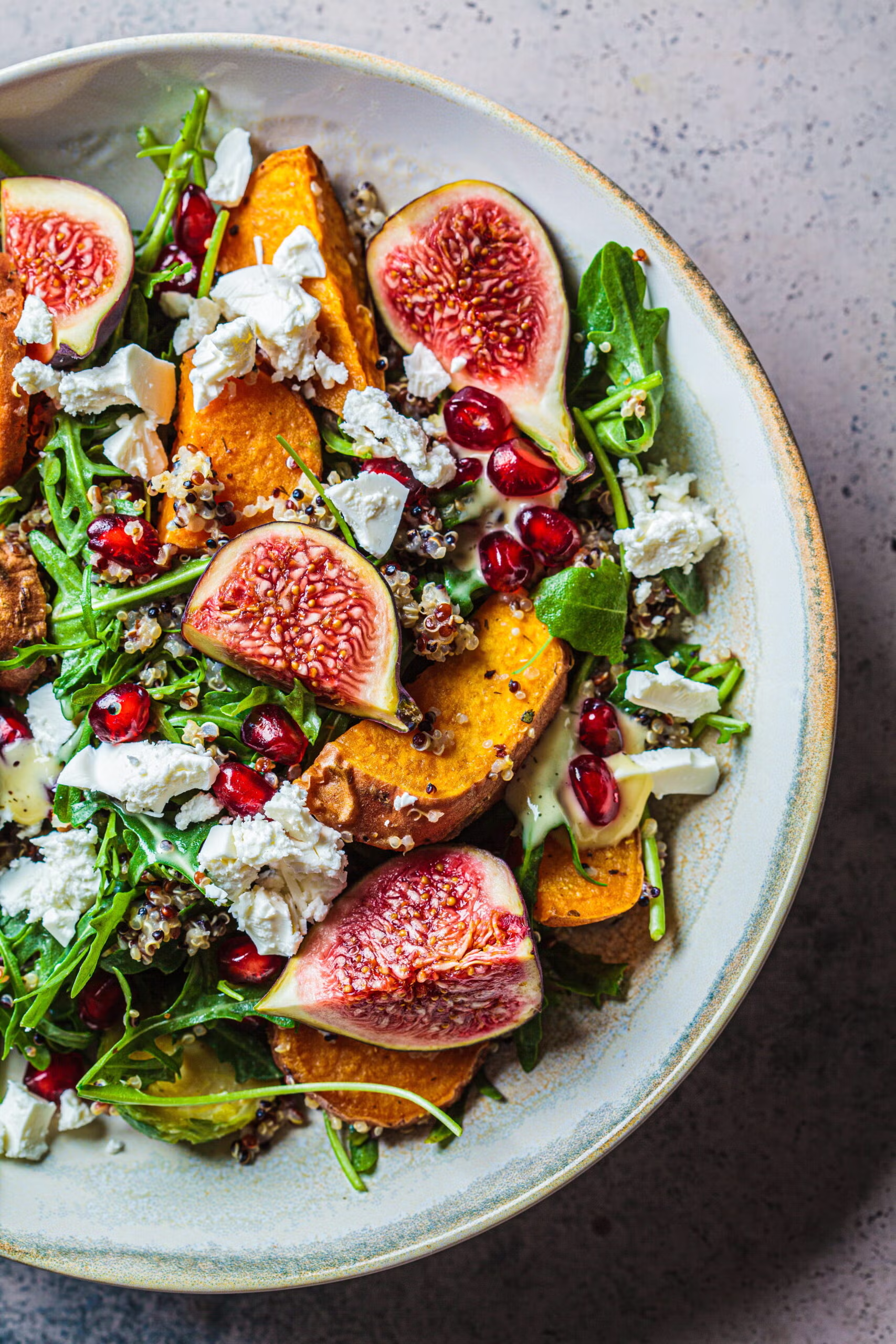London is a gourmet’s paradise. Home to all types of international dishes, it not only gives you the chance to try the latest trends, it also allows you to enjoy a global gastronomic experience without leaving the city. And if you’re looking to discover great flavours with a side of sustainability, the British capital’s the place to be. To get you inspired, this round-up highlights businesses that combine delicious menus with eco-friendly principles, for a guilt-free dining experience to remember.
An early morning experience – the E5 Bakehouse, Hackney
To get the day off to a great start, what could be better than a hearty breakfast or brunch at the E5 Bakehouse? One of the pioneers of the sourdough bread revolution in London, the bakery is based in Hackney, in a simple yet picturesque location under a railway arch. Over the past ten years, it has achieved a series of sustainable milestones that few venues can boast of. For a start, their flour (which is always organic) is produced locally, with most of the grain brought in from nearby counties such as Suffolk. It is then milled on site, in an impressive mill that you can see in the bakehouse itself, which forms part of its unique rustic appeal. The bakehouse only uses renewable energy and is committed to recycling, composting and using eco-friendly, biodegradable packaging. They also use organic produce from local suppliers to create breakfast dishes including cinnamon buns, chocolate and rye cookies, granola, porridge, bacon rolls, scrambled eggs and buttered toast and jam, all served with single origin coffee. And if you stop by later, their lunches always include vegetarian dishes, plus soups, salads and a choice of sandwiches. What’s more, during the summer months, most of the produce they use comes from Fellow’s Farm, the Suffolk-based farm that was set up a few years ago by Ben Mackinnon, the former environmental consultant and founder of the bakery.
Slow cooked, nose to tail eating – St John Restaurant, Smithfield
The one Michelin star St. John Restaurant in Smithfield is the ideal place for a square meal. Fergus Henderson is one of the most revered chefs in the country and the figurehead of this “nose to tail” gastronomic project, which has been extolling the virtue of using all parts of the animal for almost thirty years. Henderson describes this philosophy in his books, stating “if you’re going to kill an animal, it seems only polite to use the whole thing”, and puts it into practice in Smithfield, with the restaurant housed in an old smokehouse conveniently located next to Smithfield meat market. The legendary menu, which is different each day, uses every part of the animal, and includes classics like bone marrow salad along with lamb offal, pickled walnuts and endive, and ox heart and green sauce on dripping toast. As for the desserts, you won’t want to miss out on the famous house muffins.
From the market garden to the heart of London – Spring, Covent Garden
Spring is a refined, classy restaurant located in Somerset House, close to Covent Garden. It is run by Skye Gyngell, a famous Australian-born chef who has been living in London for over twenty years and has based her career on cooking with local and seasonal produce, in which both the ingredients and the place where they are prepared are sustainable. For that reason, it may come as no surprise that in less than one year, she was able to banish single-use plastics from her restaurant kitchen, or that one of her most successful menus highlights the problem of food waste. The menu, called Scratch, is only available for suppers between 5.30 p.m. and 6.30 p.m. (before the theatres open) and delivers three courses for £25. Featuring delicious dishes at a fraction of the price of many on offer in the restaurant, each contains foods that are usually discarded, such as the green part of the cauliflower. What’s more, Spring’s main supplier is Jane Scotter, who is the founder of the biodynamic Fern Verrow Farm. Gyngell and Scotter form a perfect duo and have managed to significantly reduce food waste thanks to planning both the menus and the harvests together, and taking the “farm to table” philosophy a step further.
The authentic sustainable afternoon tea – Petersham Nurseries Teahouse, Richmond
Afternoon tea at Petersham Nurseries Teahouse in Richmond, an affluent neighbourhood in South-West London that is easy to get to on public transport, is a dream-like experience. This temple of slow food and sustainability was awarded the newly-created Michelin Green Star in 2021 and is located in a marvellous setting inside a greenhouse, surrounded by beautiful gardens filled with flowers and its own orchard, which also serves as inspiration for their menus. Their suppliers practice regenerative farming and are certified to the highest standards of animal wellbeing, and the venue also carries out initiatives such as sending their coffee waste to Bio-Bean to be converted into fuel. They have also installed an anaerobic digester that converts food waste to water, thus allowing them to reduce their carbon footprint considerably. In addition to their classic afternoon tea, they have lunch and supper menus based on the same principles and featuring local, seasonal and sustainable ingredients. If you don’t have time to get to Richmond (it’s an easy journey on public transport but far from the centre), you can also visit their café in Covent Garden.
For those with a sweet tooth – Violet, in Hackney
Teatime is the ideal moment for something sweet, and Violet, founded by the Californian-born Claire Ptak, is an excellent option. Ptak trained at the well-known farm-to-table restaurant Chez Panisse and was one of the first to introduce seasonal ingredients in cakes and desserts. On arrival in London, she started to sell her cakes at a small stall in Broadway market and quickly attracted a loyal following thanks to her use of ecological ingredients and seasonal toppings, including Mango Alphonso, Dorset Blueberry and Kent Cherry. Having opened her café (located just a 10-minute walk from her market stall, which still opens on Saturdays) in 2010, today she is known for her exquisite cakes and celebrity clients including Harry and Meghan, who ordered their wedding cake from her. In addition to cupcakes, the café also offers other delights including rye brownies, spelt flour fruit cake or sandwich-style chocolate and vanilla cookies. Ptak also pays tribute to her birthplace, California, and her adopted country with favourites such as whole avocado on toast with oil, chilli and lime, and toasties including Cheddar, blue cheese and kimchi.
The brasserie with the best views of London – Oxo Tower, Waterloo
The Oxo Tower Brasserie not only has spectacular views of the Thames, it has also recently improved its sustainable credentials. From reducing single-use plastics to increasing its range of vegetarian dishes, its efforts have been rewarded by the Michelin Green Star. Here, seasonal produce is transformed by Head Chef Keir Barry into mouth-watering dishes, with options including mushroom and Jerusalem artichoke soup with mascarpone and croutons, and Cornish mackerel with potato salad and a honey, lemon and mustard dressing.
The number one in sustainability – Silo, Hackney
The Silo Restaurant, on the bank of the River Lea in Hackney Wick, East London, is always at the top of the list of the city’s sustainable restaurants. And quite rightly so. Known as the first “zero waste” restaurant in the world, Silo’s ethos is based on the idea of Australian artist Joost Baker of “not having a bin”, a principle that founder, Douglas McMaster, made his own. How? Well, their aerobic digester transforms food waste into compost in situ, creating up to 60kg of compost in 24 hours, the restaurant has its own mill for grinding grain, they make their own plant milk and butter, and adhere to a “nose to tail” philosophy, similar to St. John’s. Furthermore, the furniture and decoration of the restaurant are based on materials that would otherwise have been disposed of, such as plates made from plastic bags and tables created using food packaging, and all deliveries come in containers designed to be re-used. The tasting menu, which is tremendously creative, includes dishes such as button mushrooms with koji oats; ratte potatoes, seaweed and caramelised cream, or lettuce, elderflower and Mexican marigold.

